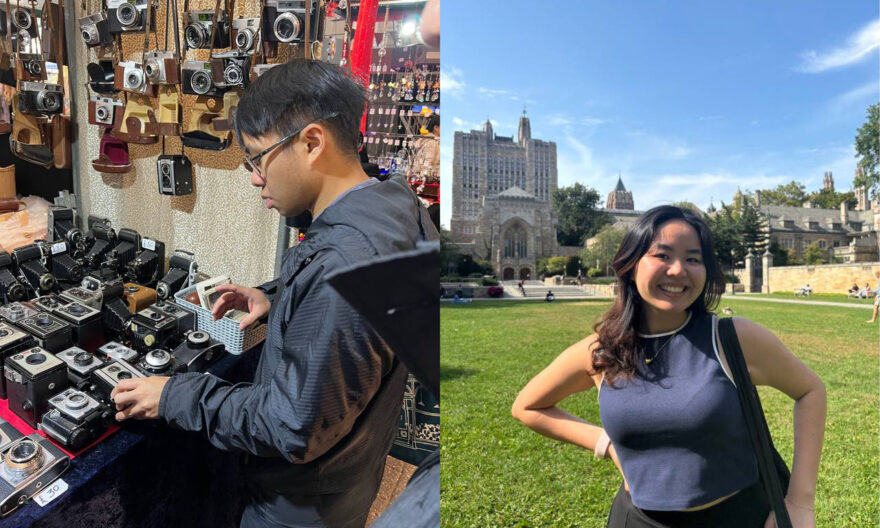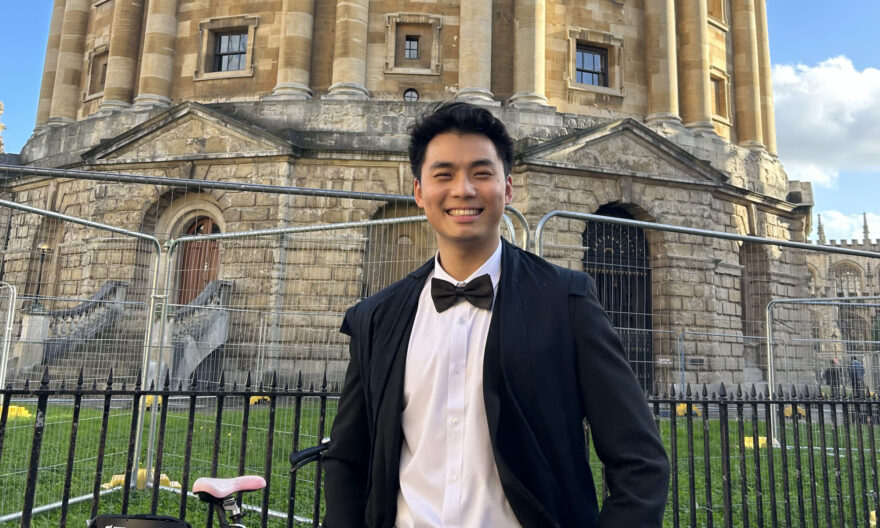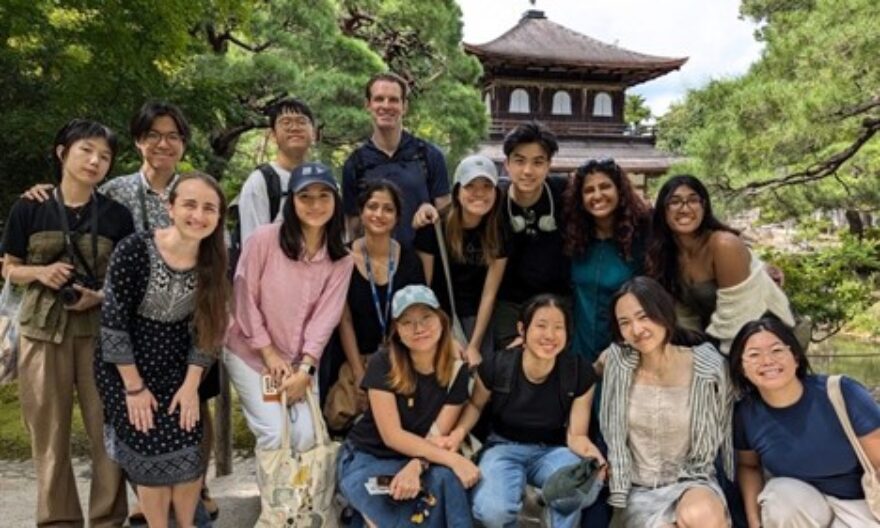Yale-NUS students explore different fields through summer research
Students gain hands-on experience with industry projects through conducting research with professors
As students sought to bring lessons from the classroom into the real word, some chose to delve into research with faculty members to gain hands-on experience with industry projects. At Yale-NUS College, students are provided the opportunity to participate in the Summer Research Programme (SRP) overseas or locally. The SRP enables students to pursue full-time, funded research under the mentorship of a faculty member during the semester break from June to August.
Chen Heng Le and Angie Yoedzer (both from the Class of 2025) spent their term break at Yale University, where they worked with Dr Kim Blenman on a project that combined medicine and computer science. Dr Blenman is an assistant professor in both the Yale School of Medicine and the Yale School of Engineering. As an immunologist, clinical chemist, and computer scientist, she focuses on developing new software to determine the underlying reasons for the differences in disease development and effects of treatment in different patients. Their research project aimed to address a gap in omics (parts of a cell) through the use of analysis tools. The project team sought to create a new framework which integrates human-computer interaction (HCI) principles to make omics analysis tools more accessible and efficient to different users.
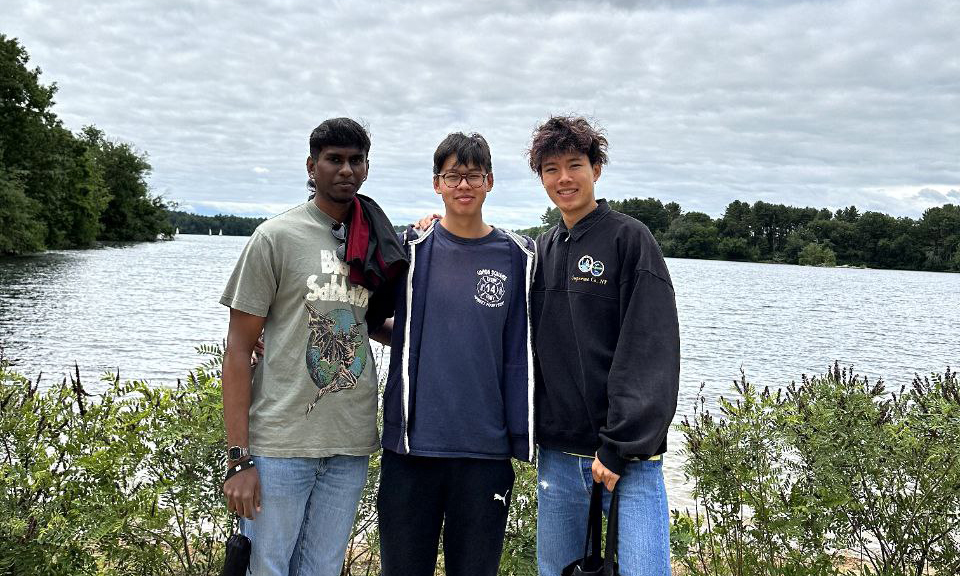 Chen Heng Le (center) and two other Yale-NUS students conducting research at Yale University. Photo provided by Chen Heng Le for Yale-NUS College.
Chen Heng Le (center) and two other Yale-NUS students conducting research at Yale University. Photo provided by Chen Heng Le for Yale-NUS College.
For Heng Le, the project presented an opportunity for him to integrate his interests in computer vision and biotechnology. In the project, he used Natural Language Processing (NLP) techniques to extract information on protein functions and analysis from several databases, such as UniProt. He also developed visualisations for the analysis which made it easier for viewers to interact with and comprehend the analysis results. Still, his work of integrating computer vision techniques with biotechnological data was challenging due to the diversity of the data he was working with and the corresponding difficulty of developing “a unified approach for efficient analysis and visualisation.”
Reflecting on his experience, Heng Le shared that the practical exposure complemented his theoretical knowledge from academic courses by providing him with hands-on experience in applying computer vision techniques to real-world biotechnological data. Aside from being able to explore his academic interests, Heng Le was also able to meet with experts in the field, such as professionals working in the NLP division of the National Library of Medicine.
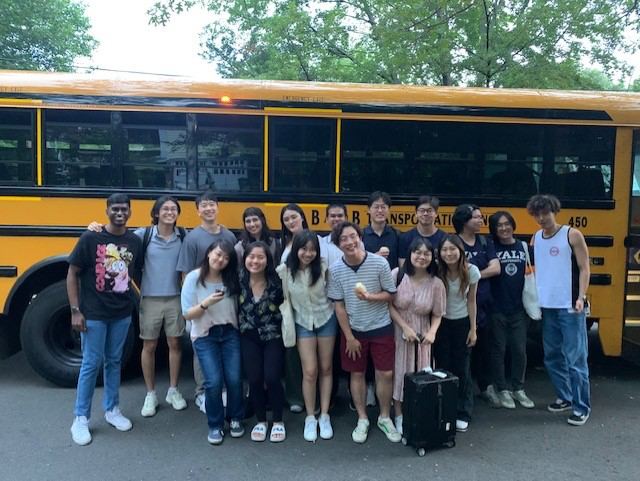 Angie Yoedzer (5th from the left in the back row) and other Yale-NUS students conducting research at Yale University. Photo provided by Angela Kuhne for Yale-NUS College.
Angie Yoedzer (5th from the left in the back row) and other Yale-NUS students conducting research at Yale University. Photo provided by Angela Kuhne for Yale-NUS College.
On the other hand, the project gave Angie the opportunity to expand her knowledge of computational biology as she had not taken any related classes before. While Angie was new to the field, Dr Blenman patiently guided her, enabling her to quickly catch up on the necessary concepts and skills needed for the project.
Angie shared, “Dr Blenman’s guidance demonstrated the importance of mentorship and a supportive environment in tackling new and unfamiliar territory. This kind of support not only bridged the gap in my knowledge but also helped in building my confidence and competence in the subject matter.”
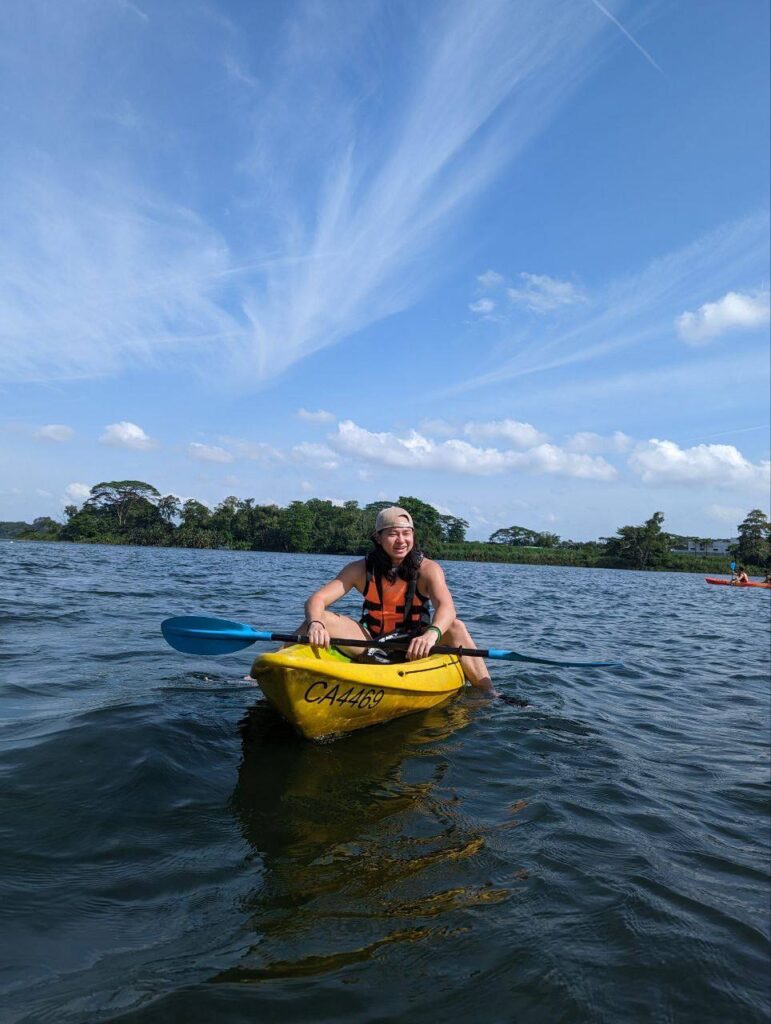 Joseph Goh. Photo provided by Joseph Goh for Yale-NUS College.
Joseph Goh. Photo provided by Joseph Goh for Yale-NUS College.
Back in Singapore, Joseph Goh (Class of 2024) worked with Assistant Professor of Social Sciences (Environmental Studies) Sudatta Ray to analyse how Waste-to-Energy technology contributes to achieving net zero targets in terms of greenhouse gas emissions. They analysed how the ratio of plastic to organic waste impacts countries’ decisions to adopt incineration technology.
Given that various factors affect waste management systems, such as landfill space and microplastics, Joseph’s work focused on the ratio of plastic to organic waste. He said, “It was a challenge to see how everything fit together and at the same time, zoom into a specific segment for deeper research.”
Joseph said the SRP has given him the opportunity to delve further into his interest in environmental industry. “Given the inherent interdisciplinary nature within the green industry, exposure to different aspects of the industry is immensely beneficial, since it enables me to have a better bird’s eye view of the space. This would then position me to pursue cross-industry environmental solutions in future endeavours,” he reflected.
The students’ learning experience culminated in the form of the Summer Research Symposium, held from 13 to 15 September, where they presented and shared their research experience and insights with the Yale-NUS community. Through poster sessions and live multimedia presentations, students share and discuss their scholarship with a broader audience, hone their communication skills and inspire their peers to get involved in meaningful research.

